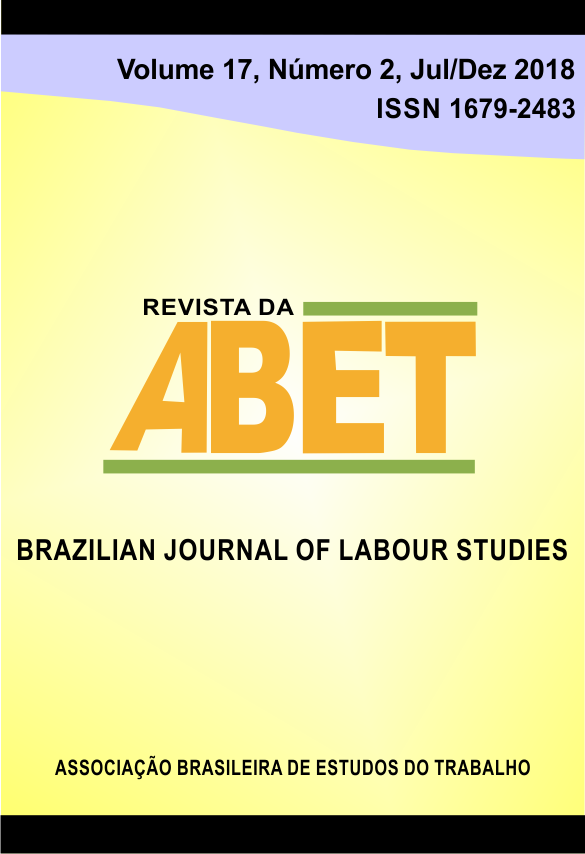LABOUR JUSTICE AND PRODUCTIVITY IN BRAZIL: CHECKING HYPOTHESES OF THE 1990’S AND 2000’S
DOI:
https://doi.org/10.22478/ufpb.1676-4439.2018v17n2.44626Abstract
This text presents empirical evidence to ‘test’ some hypotheses about the impacts of Labour Justice on labour productivity. Hypotheses that, even if involuntarily, this Justice would encourage ‘opportunistic’ and ‘immediatist’ behaviors of employers and workers. Moreover, these behaviors would result in noncompliance with labour contracts (informality), early termination of these contracts (turnover), as well as losses for labour productivity. The empirical evidence presented here shows that these hypotheses, which concern to ‘opportunistic’ and ‘immediatist’ behaviors, seem to be confirmed mainly by the behavior of employers. After all, from temporal and monetary perspectives, they seem to have something to gain, either with the postponement of credit payments or with the mitigation (or ‘discount’) of these payments. In turn, by the workers’ side, they seem to have a lot to lose with both phenomena.
Downloads
Metrics
Downloads
Published
How to Cite
Issue
Section
License
Política de Acesso Livre
Esta revista oferece acesso livre imediato ao seu conteúdo, seguindo o princípio de que disponibilizar gratuitamente o conhecimento científico ao público proporciona maior democratização mundial do conhecimento.
Atribuição dos artigos é não comercial (sem derivações 4.0, isto é, Creative Commons) e o acesso é livre e gratuito para download e leitura.
Não há taxa para submissão, avaliação e publicação de artigos.
Copyright
1) Os artigos são de responsabilidade exclusiva dos autores. É permitida sua reprodução, total ou parcial desde que seja citada a fonte.
2) Os trabalhos enviados para publicação devem ser inéditos, não sendo permitida sua apresentação simultânea em outro periódico nacional.
3) Os artigos são submetidos a pareceristas "ad hoc", após prévia avaliação da Comissão Editorial, os quais podem aceitar, recusar ou reapresentar o original ao autor com sugestões para alterações. Os nomes dos pareceristas permanecem em sigilo, bem como os nomes dos autores.
Os Autores que publicam nesta revista concordam com os seguintes termos:
Autores mantêm os direitos autorais e concedem à revista o direito de primeira publicação, com o trabalho simultaneamente licenciado sob a Creative Commons Attribution License, permitindo o compartilhamento do trabalho com reconhecimento da autoria do trabalho e publicação inicial nesta revista.
Autores têm autorização para assumir contratos adicionais separadamente, para distribuição não-exclusiva da versão do trabalho publicada nesta revista (ex.: publicar em repositório institucional ou como capítulo de livro), com reconhecimento de autoria e publicação inicial nesta revista.
Autores têm permissão e são estimulados a publicar e distribuir seu trabalho online (ex.: em repositórios institucionais ou na sua página pessoal), já que isso pode gerar alterações produtivas, bem como aumentar o impacto e a citação do trabalho publicado.
Patrocinador
A publicação recebe financiamento da Associação Brasileira de Estudos do Trabalho.










